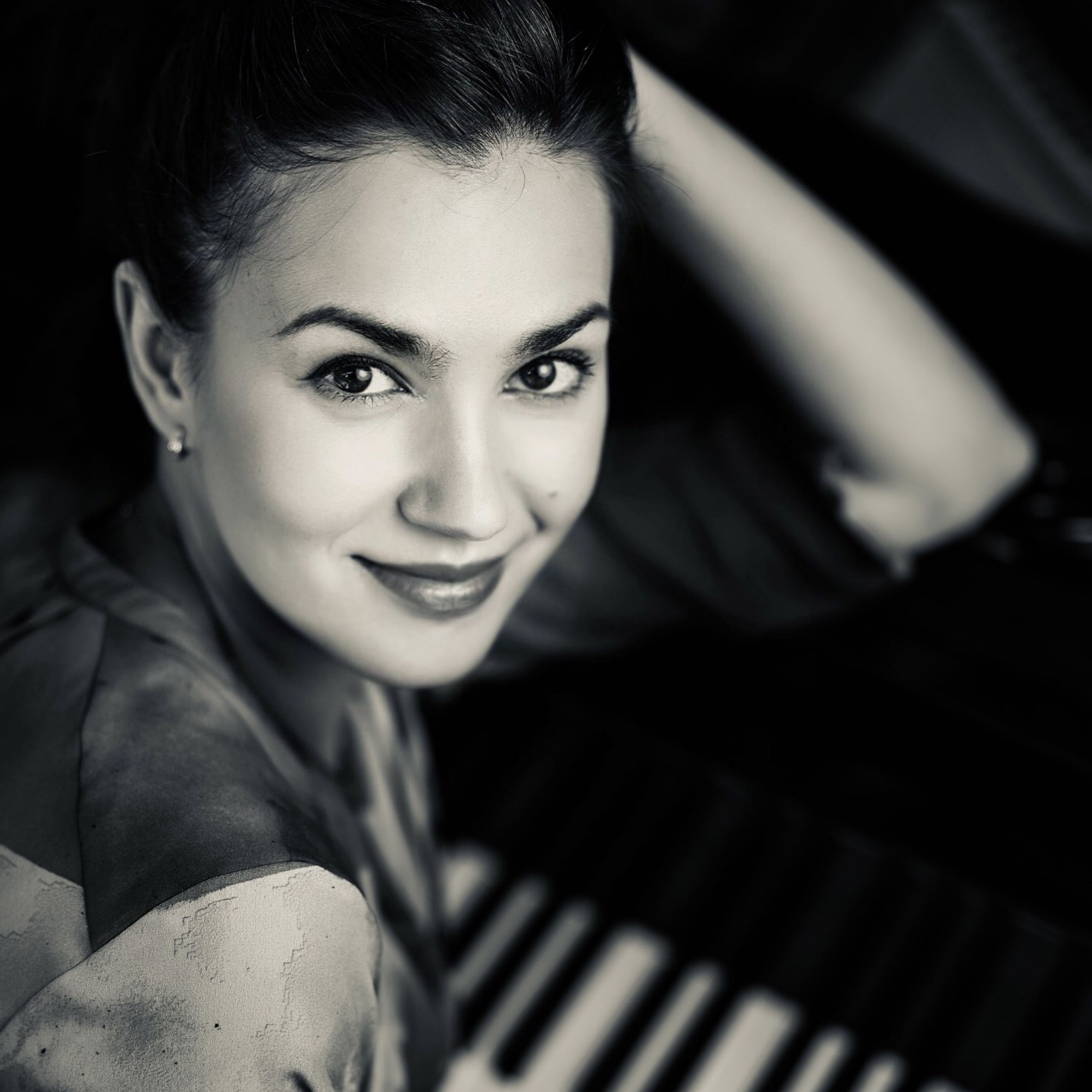About
Kat Souponetsky (née Katerina Kramarchuk) is a composer, pianist and educator based in Philadelphia whose music has been described as "quick-witted, tightly constructed and ruefully introspective, with propulsive, sometimes jazzy rhythms and suave textures" (The Oregonian). Her works have been performed and broadcasted across the globe at respected venues such as The Louvre, Bargemusic, The Chamber Music Society of Lincoln Center, Dresden Music Festival, Peter Jay Sharp Theater, Arlene Schnitzer Concert Hall, Le Fontainebleau Château, U.S. Airways radio, and the Isabelle Stewart Gardner Museum. She has been commissioned by chamber music groups and institutions such as Curtis Institute of Music, Dolce Suono Ensemble, Portland Chamber Orchestra, New York Choreographic Institute, The Rock School for Dance Education, The Mousai, ensemble39, and PRISM Saxophone Quartet. In a previous season, she was the recipient of the first ever commission by Philadelphia Inquirer, as a part of their new media initiative in the arts. She has also been commissioned by the Chamber Music Northwest Festival where she was the first protégé composer in residence in 2012. In 2011, she was the first composer to be commissioned by One Book One Philadelphia. That same year, her Shadows for orchestra was selected by the EarShot New Music readings, which resulted in a performance by the Pioneer Valley Symphony. An aspiring film composer, Souponetsky has completed her first score for “The Projectionist”, an Australian silent film, which was chosen to be screened at Juilliard’s “Beyond the Machine” Festival in 2013.
As a classical pianist and while in high school, Souponetsky has performed with the Portland Chamber Orchestra, and was the winner of DownBeat Magazine Student Music awards, the MTNA State Piano Competition, and All Classical 89.9FM competition in Portland, OR among others. While focusing primarily on classical piano performance, she became interested in jazz. She has performed at numerous jazz festivals and received awards for her outstanding performances. For three consecutive years, Souponetsky has performed her music for solo piano at the popular show "Ten Grands" in Portland, OR.
When not composing for the concert stage, Kat actively teaches piano, composition and music theory. Recently, she started teaching at The University of the Arts in Philadelphia. In 2013, she was a teaching fellow at the Curtis Summerfest's Young Artist Summer Program where she taught composition classes, coached chamber groups, and performed with the participants. She recently self-published her "Original Piano Solos" in 3 volumes and "Original Jazz Piano Solos" with her company, Kat Sounds Music. Her goal is to inspire students to love music as much as she does while nurturing their enthusiasm to practice piano.
Born in Kishinev, Moldova to a musical family, Souponetsky began her musical studies at age 6 at the "Ciprian Porumbescu" Lyceum of Music. In 2002 her family moved to the United States. Souponetsky holds a Bachelor of Music in Composition from Manhattan School of Music, an Artist Diploma in Composition from the Curtis Institute of Music where she studied with Richard Danielpour and David Ludwig, and a Master of Music in Composition from The Juilliard School where she studied with Christopher Rouse and was the recipient of the Gitta Steiner Cartwright Scholarship. Kat currently resides in the Philadelphia area.
